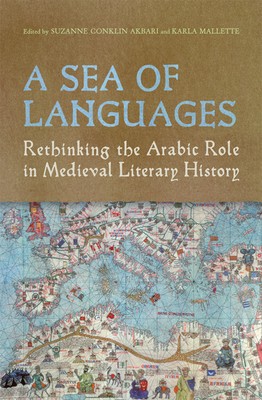
- We will send in 10–14 business days.
- Publisher: University of Toronto Press
- ISBN-10: 0802098681
- ISBN-13: 9780802098689
- Format: 15.5 x 23.1 x 2.8 cm, hardcover
- Language: English
- SAVE -10% with code: EXTRA
A Sea of Languages (e-book) (used book) | bookbook.eu
Reviews
Description
Medieval European literature was once thought to have been isolationist in its nature, but recent scholarship has revealed the ways in which Spanish and Italian authors - including Cervantes and Marco Polo - were influenced by Arabic poetry, music, and philosophy. A Sea of Languages brings together some of the most influential scholars working in Muslim-Christian-Jewish cultural communications today to discuss the convergence of the literary, social, and economic histories of the medieval Mediterranean.
This volume takes as a starting point MarÃa Rosa Menocal's groundbreaking work The Arabic Role in Medieval Literary History, a major catalyst in the reconsideration of prevailing assumptions regarding the insularity of medieval European literature. Reframing ongoing debates within literary studies in dynamic new ways, A Sea of Languages will become a critical resource and reference point for a new generation of scholars and students on the intersection of Arabic and European literature.
EXTRA 10 % discount with code: EXTRA
The promotion ends in 15d.19:31:35
The discount code is valid when purchasing from 10 €. Discounts do not stack.
- Publisher: University of Toronto Press
- ISBN-10: 0802098681
- ISBN-13: 9780802098689
- Format: 15.5 x 23.1 x 2.8 cm, hardcover
- Language: English English
Medieval European literature was once thought to have been isolationist in its nature, but recent scholarship has revealed the ways in which Spanish and Italian authors - including Cervantes and Marco Polo - were influenced by Arabic poetry, music, and philosophy. A Sea of Languages brings together some of the most influential scholars working in Muslim-Christian-Jewish cultural communications today to discuss the convergence of the literary, social, and economic histories of the medieval Mediterranean.
This volume takes as a starting point MarÃa Rosa Menocal's groundbreaking work The Arabic Role in Medieval Literary History, a major catalyst in the reconsideration of prevailing assumptions regarding the insularity of medieval European literature. Reframing ongoing debates within literary studies in dynamic new ways, A Sea of Languages will become a critical resource and reference point for a new generation of scholars and students on the intersection of Arabic and European literature.


Reviews